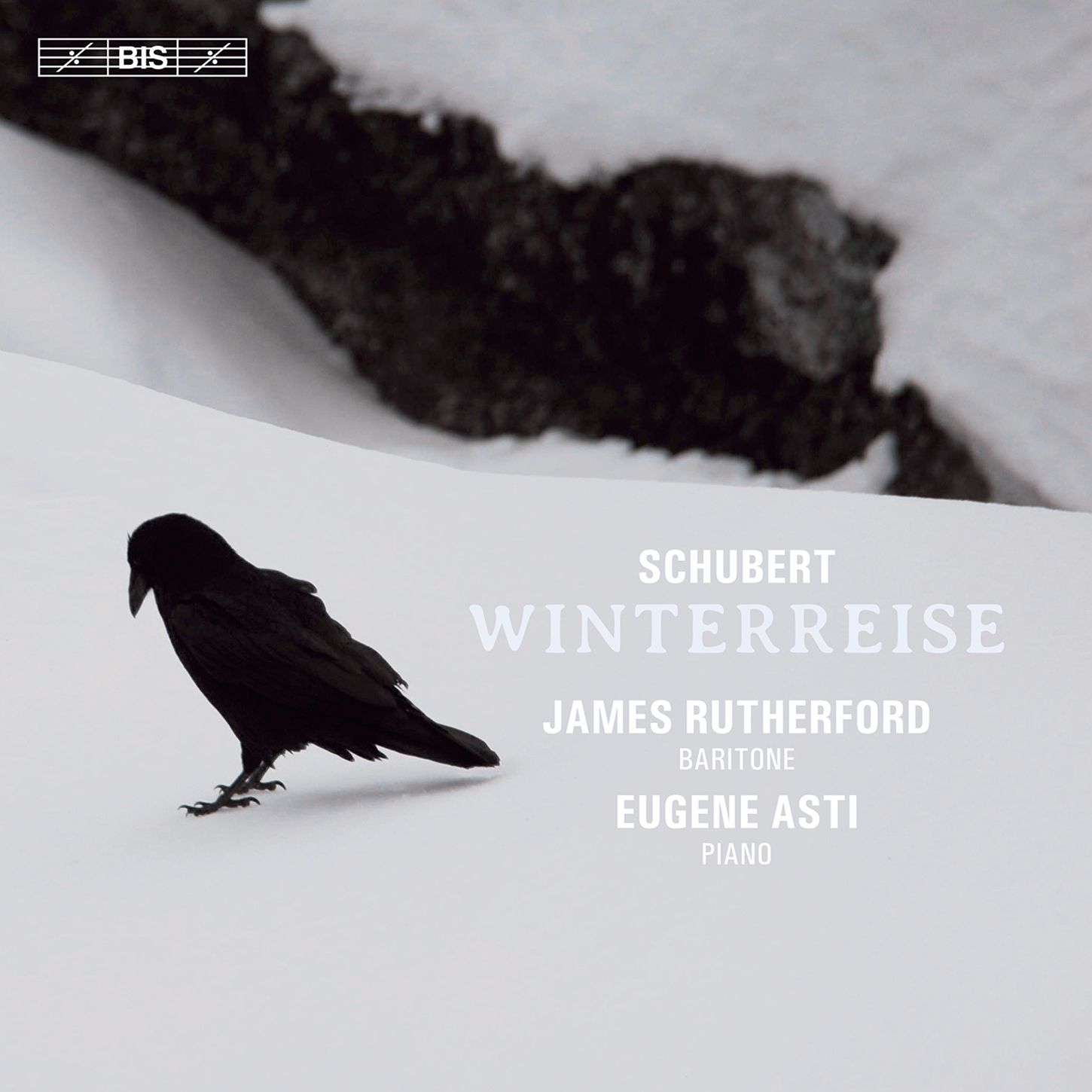Daring Schubert's Winter Journey: James Rutherford & Eugene Asti on BIS

Schubert's setting of 24 textx by Wilhelm Müller of 1827 is arguably his crowning achievement.. The composer himself called this "a cycle of horrifying songs"; the protagonist is the epitome of the Romantic Wanderer, the starting point lost love, the journey itself an interior one as much as an external one. Never has Schubert been closer to the world fo Gustav Mahler.
Written in the year prior to Schubert's own death at the age of 31, this piece seems prophetic. But Schubert would have been aware of his syphilis (which he contracted in 1822). While written originally for tenor (as indeed we saw ina post on a box of three Schubert song-cycles here), it is often heard performed by other voice-ranges (including female ones, most famously perhaps Lotte Lehmann and Brigitte Fassbaender: click here for Lehmann and Ulanowsky). James Rutherford takes it into baritone territory; the most famous non-tenor interpreter is surely Dietrich Fischer-Dieskau, but who could forget the great Hans Hotter in this piece? Here, we hear the piece transposed a minor third down to put it into the baritone register, and we can hear how the pitch suits Rutherford's voie so perfectly in "Rast":
This is a thoughtful and profound account. Unlike some, though, it doesn't hang around. Here's "Rückblick":
Nuance doesn't mean lack of drama though:, as you can also hear above. Think of this as a marvellously sculpted Winter landscape with infinite shades of white, gray and black, an interior soundscape that effectivesly takes one over completely. Part of that variegated surface is momentum; this is not a Winterreise that never moves. Listen to the breathless excitement of "Die Post" (and a word here for Eugene Asti, whose posthorn imitation on the piani is one of the best I have heard!); the rhythmic spring of his playing, too, is remarkable:
It is that very variety of shades of white and (especially) black that enables the final "Der Leiermann" to have such impact here. It's restrained, hushed, almost reverant, and compelling, leaving a devastating silence in its wake:
I suppose one question is, does one enjoy Winterreise? If it is Hans Hotter singing, possibly that's not the right word. But with Rutherford and Asti, one can experience profundity alongside relishing the performance (Asti's rock-solid technique helps). There's alos a real rapport here: James Rutherford enjoys a long-lasting partnership with pianist Eugene Asti, and on BIS the two have previously released a recording of Schubert’s Schwanengesang.
